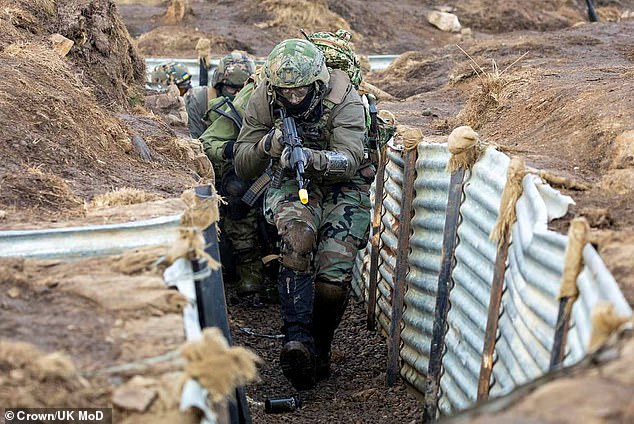Britain could send troops to Ukraine as part of a £225m support package for kyiv, the Defense Secretary has hinted, as he promised to “put a lot more pressure” on Vladimir Putin.
John Healey appeared to be open to the idea of sending British soldiers to the war-torn nation to help train new Ukrainian recruits to fight the Russians.
The UK has already played a key role in preparing Ukrainian volunteers for the frontline, training more than 51,000 troops on British bases since Putin launched his full-scale invasion in 2022.
But in a possible change of direction, Healey said the UK now needs to “better tailor training to what Ukrainians need” during his latest trip to kyiv.
The Defense Secretary, 64, added that his son’s service as an Army reservist has helped him understand the “gravity” of military action overseas for soldiers’ families.
talking to The timesThe Labor MP said: “(We need to) facilitate access for Ukrainians and (we need to) work with Ukrainians to help them motivate and mobilize more recruits.”
Asked if this meant extending the training of Ukrainian recruits within the UK to Ukraine itself, he added: ‘We will look wherever we can to respond to what the Ukrainians want. They are the ones fighting.’
Last year, former Conservative defense secretary Grant Shapps expressed support for such a move during an interview with the Sunday Telegraph.
Here, Ukrainian troops are training to storm a trench at a British Army installation in northwest England.
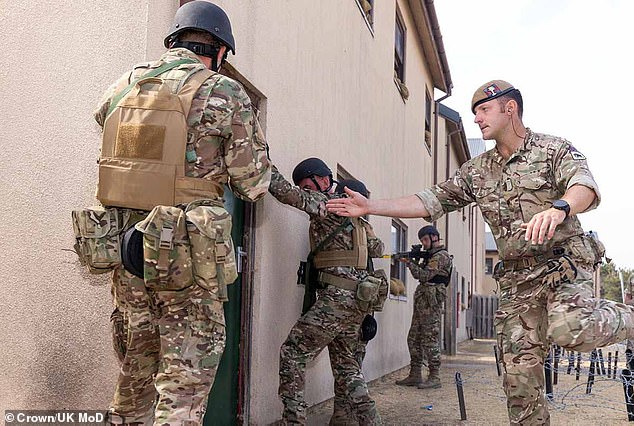
British troops have trained more than 51,000 Ukrainian soldiers since 2022. Pictured, a British soldier teaches Ukrainian recruits how to storm a building.
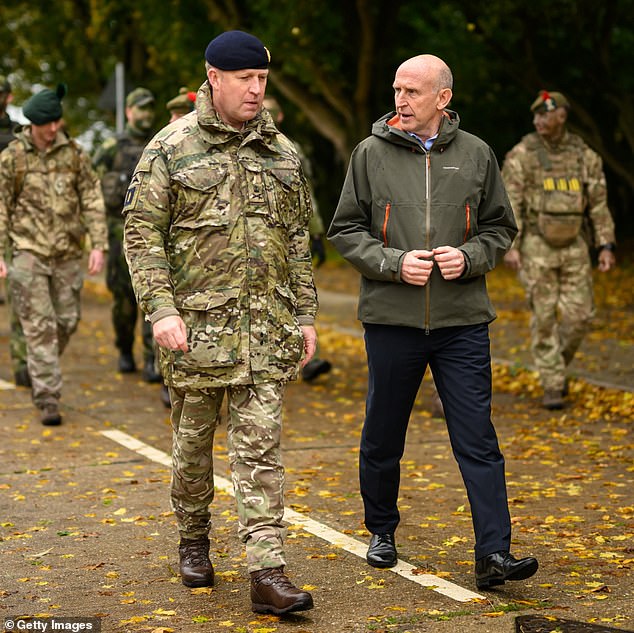
Defense Secretary John Healey (right) is set to send British troops to Ukraine to train new recruits there. He is seen speaking to British soldiers at Stanford Training Area on October 20, 2024 near Thetford, England.
Healey is believed to be the first Labor government figure to put forward the same proposal.
It comes as the Defense Secretary revealed Britain’s ambition to “put a lot more pressure” on Russia next year.
During his trip to the besieged Ukrainian capital, he revealed that the UK will send Ukraine an additional military support package worth £225 million, which would include deadly weapons.
Healey met his Ukrainian counterpart Rustem Umerov yesterday and outlined how the UK will provide more air defense and electronic warfare equipment, as well as drones and munitions for the country’s navy.
The equipment will be provided by the International Fund for Ukraine, with Western allies sharing the cost. Healey also set out priority areas for UK support.
These include Ukraine’s military capabilities on the battlefield, the training of its soldiers by British troops, greater industrial cooperation and increasing pressure on Russia.
Last night Healey said: “The UK will step up its international leadership in Ukraine throughout 2025.
‘We will improve our training offering and provide battle-winning capabilities, included in our new £225 million package.
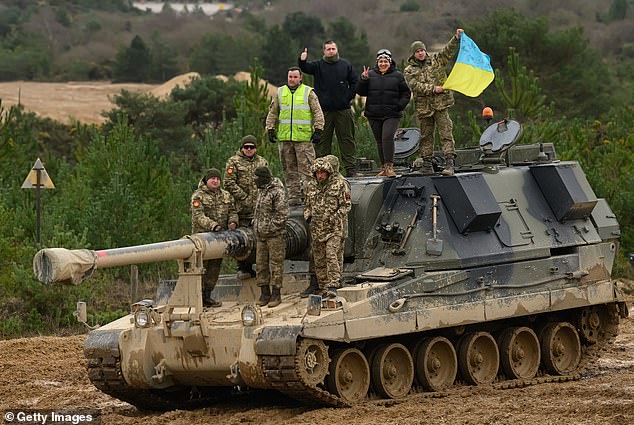
Ukrainian recruits and their trainers from the British Armed Forces pose for a photograph on an AS90 self-propelled artillery system at a military installation, February 23, 2023 in southern England.
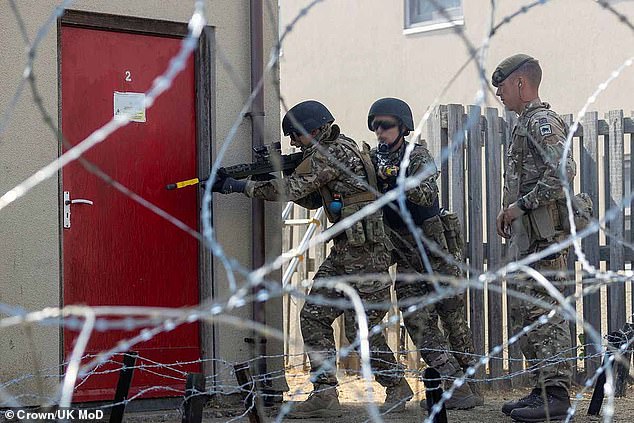
Ukrainian soldiers put their new skills into practice, storming a building while a British Army instructor looks on.
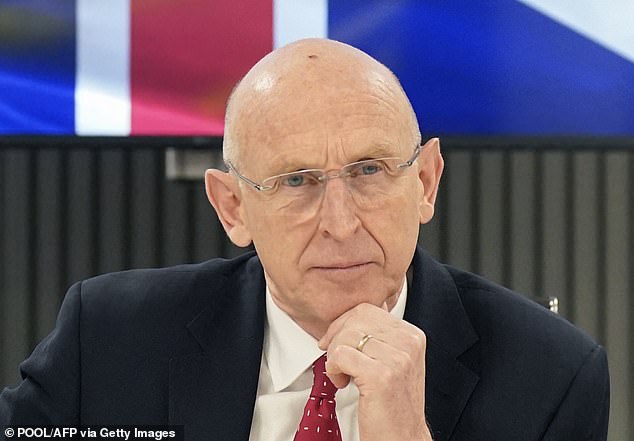
John Healey (pictured) met his Ukrainian counterpart Rustem Umerov yesterday and outlined how the UK will provide more air defense and electronic warfare equipment, as well as drones and munitions for the country’s navy.
“During my meetings in kyiv I made it clear that UK support will continue as long as it is needed, regardless of the situation in Ukraine and we will always stand shoulder to shoulder to ensure Putin cannot win.”
The UK continues to co-lead international maritime and drone coalitions to provide Ukraine with new advanced weapons and equipment.
The International Fund for Ukraine is a financing mechanism that uses financial contributions from international partners to rapidly acquire priority military equipment for Ukraine.
The fund is administered by the UK Ministry of Defense on behalf of an executive panel made up of the UK, Norway, the Netherlands, Denmark, Sweden and Lithuania. These partners, along with Iceland, Australia, Portugal and New Zealand, have pledged more than £1.3bn to date.


